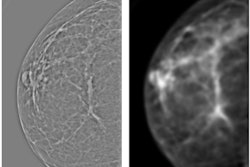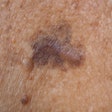
Cancer screening in California has resulted in a decline in the number of late-stage diagnoses for breast cancer, while late-stage diagnoses for other cancers -- such as cervical and prostate cancer -- are increasing, according to a new report.
The report by the University of California, Davis (UCD) Institute for Population Health Improvement (IPHI) shows the effects of cancer screening in the state over the past 15 years.
IPHI's California Cancer Reporting and Epidemiologic Surveillance (CalCARES) program collaborates with the California Department of Public Health to manage the California Cancer Registry. For this report, CalCARES reviewed statewide data from 1999 through 2013 to identify trends in the diagnosis of advanced cancers of the breast, colon and rectum, cervix, prostate, skin, and oral cavity and pharynx -- all types of cancer for which effective screening methods exist, the group said.
The report lists several findings:
- The number of late-stage diagnoses decreased for breast cancer overall throughout the state, while the number of late-stage diagnoses for cervical, prostate, and oropharyngeal cancers increased.
- The highest percentage of late-stage diagnoses for cervical cancer occurred in the Central Valley region, followed by the Sacramento and Northern California regions.
- Advanced prostate cancer diagnoses increased particularly in the Los Angeles-Orange County, Central Valley, and Sacramento regions, and in Kern, Imperial, Del Norte-Humboldt, Lake, and Siskiyou-Trinity counties.
- Advanced oropharyngeal cancer diagnoses increased in Los Angeles-Orange County and the San Francisco Bay Area, Central Valley, San Diego-Imperial, and Sacramento regions.
- Advanced colorectal cancer diagnoses increased in San Diego-Imperial and Northern California counties; decreased in the San Francisco Bay Area, Inland Empire, and Central Valley regions; and remained unchanged but high in Sacramento, Placer, Mendocino, Lake, Lassen-Modoc-Plumas, and Santa Cruz counties.
- Advanced melanoma diagnoses decreased in the San Francisco Bay Area and Central Coast counties and increased in Sacramento, the High Sierra, and Los Angeles County regions.
"We have effective screening tests for several cancers, which allow physicians and other healthcare providers to identify the disease at an earlier stage -- often before symptoms surface," senior author of the report and IPHI Director Dr. Kenneth Kizer said in a statement released by UCD. "However, too many Californians are not getting screened and, as a result, many persons are not being diagnosed until their cancers have progressed to an advanced stage."



















